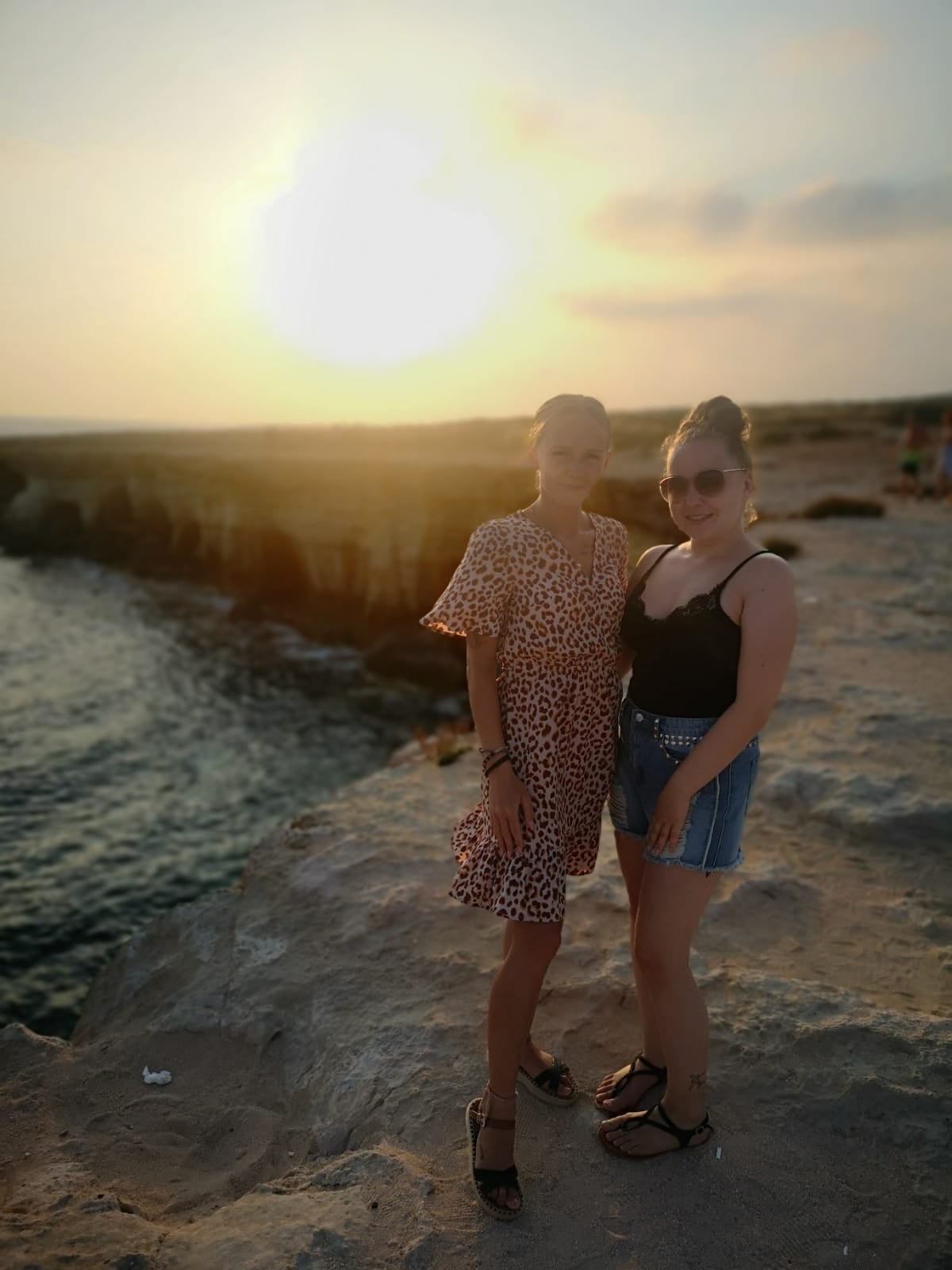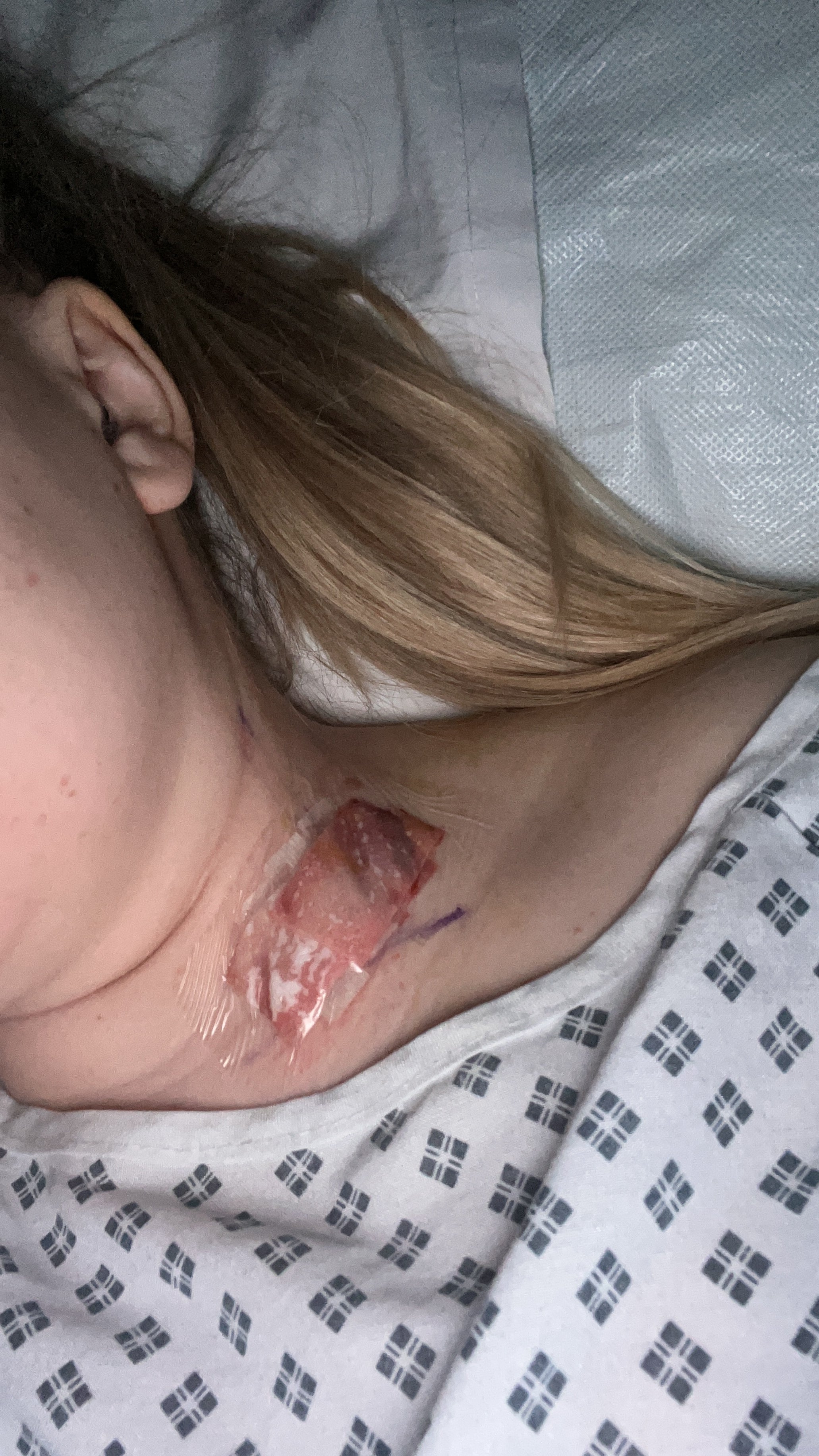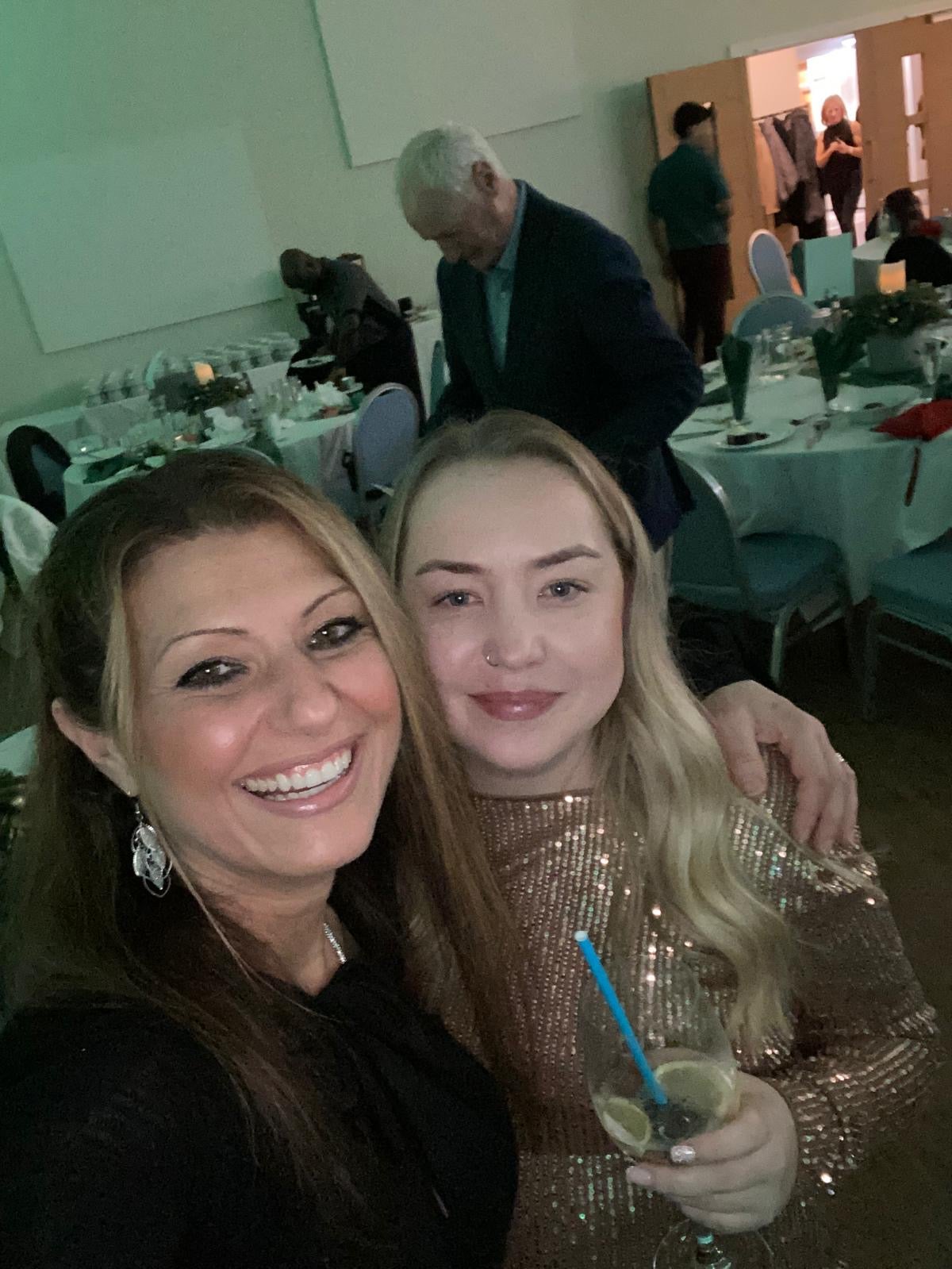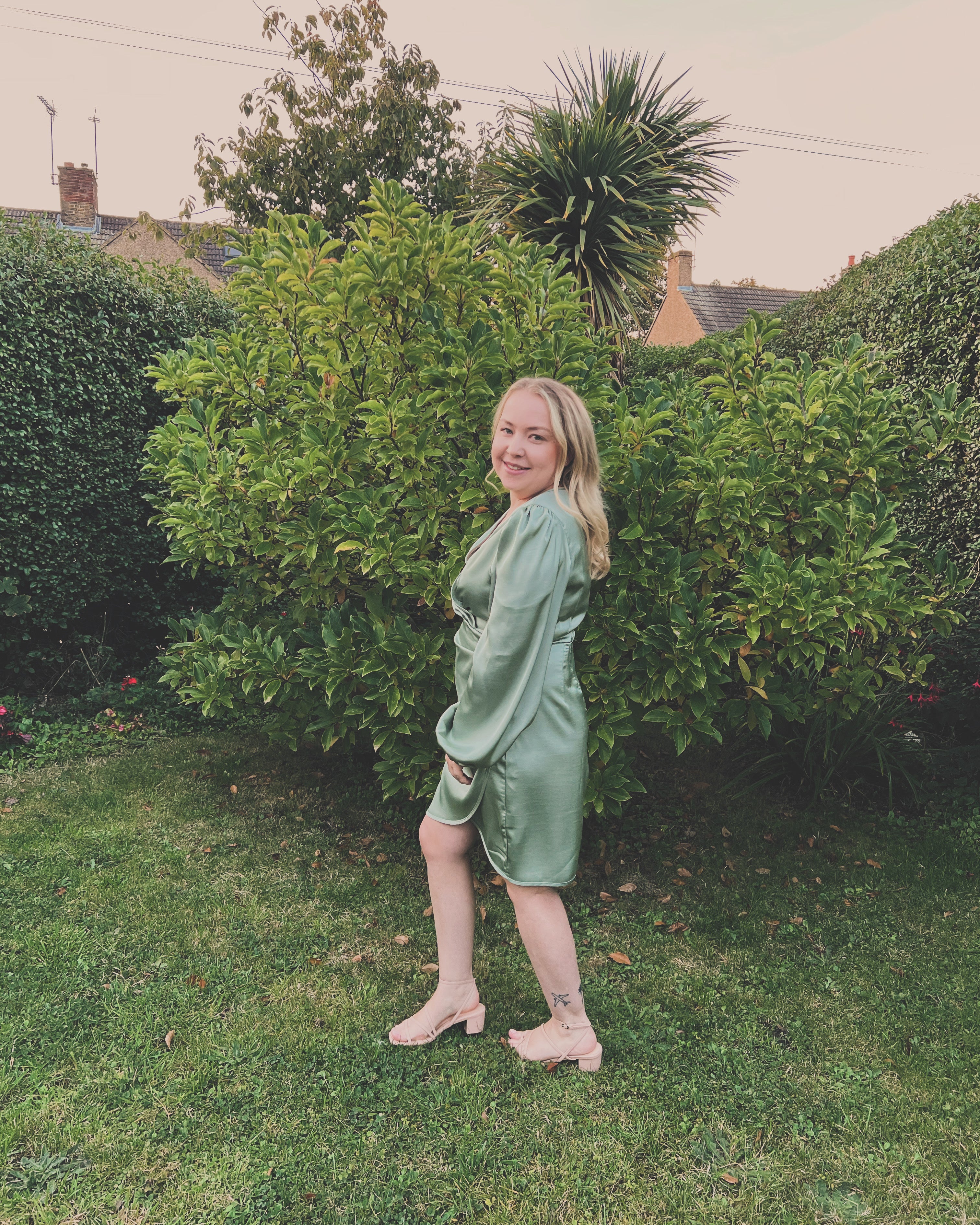This website uses cookies so that we can provide you with the best user experience possible. Cookie information is stored in your browser and performs functions such as recognising you when you return to our website and helping our team to understand which sections of the website you find most interesting and useful.
A woman with stage four skin cancer is advocating for the UK government to prohibit sunbeds after she was diagnosed with melanoma at just 23 years old.
Lily Murphy, 30, from Watford, says she used sunbeds fewer than 10 times in her life before her diagnosis with stage 1B melanoma following a trip to South East Asia with friends.
After receiving the all-clear from her initial diagnosis, Lily began experiencing back and chest pain in 2023, which was initially dismissed as anxiety before further scans and blood tests confirmed she had stage four melanoma.
She is expected to undergo lifelong treatment after the disease spread to her neck and lungs.
While working as an NHS administrative clerk in Watford General Hospital’s dermatology department, Lily has witnessed an increase in young people being referred for cancer biopsies, many of whom have a history of sunbed use.
In light of her professional and personal experiences, Lily is petitioning the government to ban sunbeds in the UK, copying similar legislation in Brazil and Australia, arguing that the cost is too high to the individuals and an already overburdened NHS.

“I’ve probably used sunbeds for less than an hour in total,” Lily said.
“Just going on a sunbed for six minutes can change your whole life, plus it costs the NHS: immunotherapy can cost £15,000 per round.
”If I could stop just one person using sunbeds to save them going through what I’ve been through, it will be a miracle.”
Lily first noticed a mole in 2018 that had darkened and started to bleed, but was told by doctors that it wasn’t anything to worry about.
Reassured, she went travelling to Vietnam and Bali with friends, using sunbeds beforehand to get a base tan.
“It was literally just, ‘Let’s start my tan before I go on holiday’, just a couple of minutes here, a couple of minutes there, just to get the tan going,” she explained.

While on holiday, she did use sun cream to protect herself from the sun’s UV rays.
“As I’m very fair-skinned, I’d always get burnt no matter what, even if I put it on,” she said.
“I probably wasn’t as cautious as I would be now; now I’m putting it on every couple of hours, whereas before I was probably putting it on once or twice a day.”
Upon her return to the UK, Lily went back to the doctor for a second opinion on her mole.
“That’s when the doctor said, ‘This doesn’t look right, I’m going to refer you to the two-week cancer pathway’,” she said.
She had the mole removed and was called back for an appointment two weeks later.
“There were two Macmillan Cancer nurses in there too… that’s when they said to me it’s come back as melanoma, stage 1B.
“I was shocked, I was devastated. But as there was a delay between the call and the appointment, by the time I saw the doctor, it had actually sunk in a bit.”

Stage 1B melanoma is one of the earliest stages of skin cancer, meaning that it has not yet spread to nearby lymph nodes or other parts of the body, and it is generally highly curable, which meant Lily was optimistic about getting the all-clear after treatment.
Lily was the youngest person in her cancer support group.
She had a wide local excision and a central lymph node biopsy at the Royal Free Hospital in London in 2019.
“It felt like such a relief to hear that the cancer hadn’t spread – my cancer journey might have been short, it was only a couple of months, but I said to myself, ‘I’ve beaten it’,” said Lily.
“I did think I’ve got another chance in life; let’s just go and have fun, just going on holidays, nights out and just appreciating everyone around me and spending as much time with everyone as possible, because life is so short.”
It was after a family weekend at a log cabin in Gloucestershire in January 2023 that she started to feel unwell again.

“I was just constantly tired, and I couldn’t understand why,” Lily said.
“The following weekend I worked overtime and had back pain, so I thought I’d sat uncomfortably or something but then I woke up the next morning and had really bad chest pain and couldn’t breathe, and said to my mum it feels like something’s not right.”
Despite repeated trips to A&E, Lily’s concerns were dismissed as anxiety, linked to her mental health history.
Eventually, through her mum, who also works at Watford General, she was booked for scans and blood tests in a different department, which led to a Stage 4 melanoma diagnosis.
“They said we’ve found some masses in your lungs and your neck,” Lily said.
Doctors explained that in rare cases like hers, melanoma can spread via the blood and not show on the scans she had done during her first cancer experience.
With new treatments, some people are living with stage four melanoma for a long time, according to Cancer Research UK.

Lily began immunotherapy treatment in April 2023, but struggled to tolerate the doses required, with each round costing the NHS £15,000.
She then tried two oral chemotherapy treatments but developed a severe allergic reaction within 10 days, including a rash that spread down her throat.
Lily later developed sepsis, caused by a weakened immune system, and was taken to hospital.
In February 2025, she started a new treatment that has already begun shrinking her cancer, despite only managing four of the recommended 12 tablets per day.
“I’m taking a break from treatment at the moment, because it’s just too much on my body,” Lily said.
Now on a phased return to work, she’s back booking skin cancer biopsies.
“As much as it’s triggering, it’s rewarding – I can help people because I’ve had the experience of the worry,” Lily said.
Her petition, Ban Sun Beds to Protect Against Skin Cancer in the UK, launched in May and has already gained more than 700 signatures.
Main symptoms of melanoma skin cancer
NHS
A new mole or a change in an existing mole may be a sign of melanoma.
Melanomas are often:
- an uneven shape, or may have two different-shaped halves and uneven edges.
- a mix of two or more colours.
- bigger, often more than 6mm wide.
- changing in size, shape or colour.
Other signs to look out for include moles that are:
- swollen and sore
- bleeding
- itchy
- crusty
“It was just a spur-of-the-moment thing,” she said.
“Every day, I’m getting biopsy requests where the patient has a history of using sunbeds.
“Sunbeds are a known cancer risk. Banning them would save lives – and save the NHS money.”
On top of a sunbed ban, Lily has called for better education as she believes social media and influencer culture glamorise tanning without showing the risks, even though safer alternatives are widely available.
“Your tan is semi-permanent, but your life should be permanent,” Lily said.
A West Hertfordshire Teaching Hospitals NHS Trust spokesperson said: “Lily is an inspirational colleague who continues to work tirelessly for the Trust and our patients while undergoing treatment.
“We are in awe of her phenomenal work ethic and her spirit, and we send her all our support during this challenging time.”
Lily’s petition can be found on Change.org.



 Africana55 Radio
Africana55 Radio 
